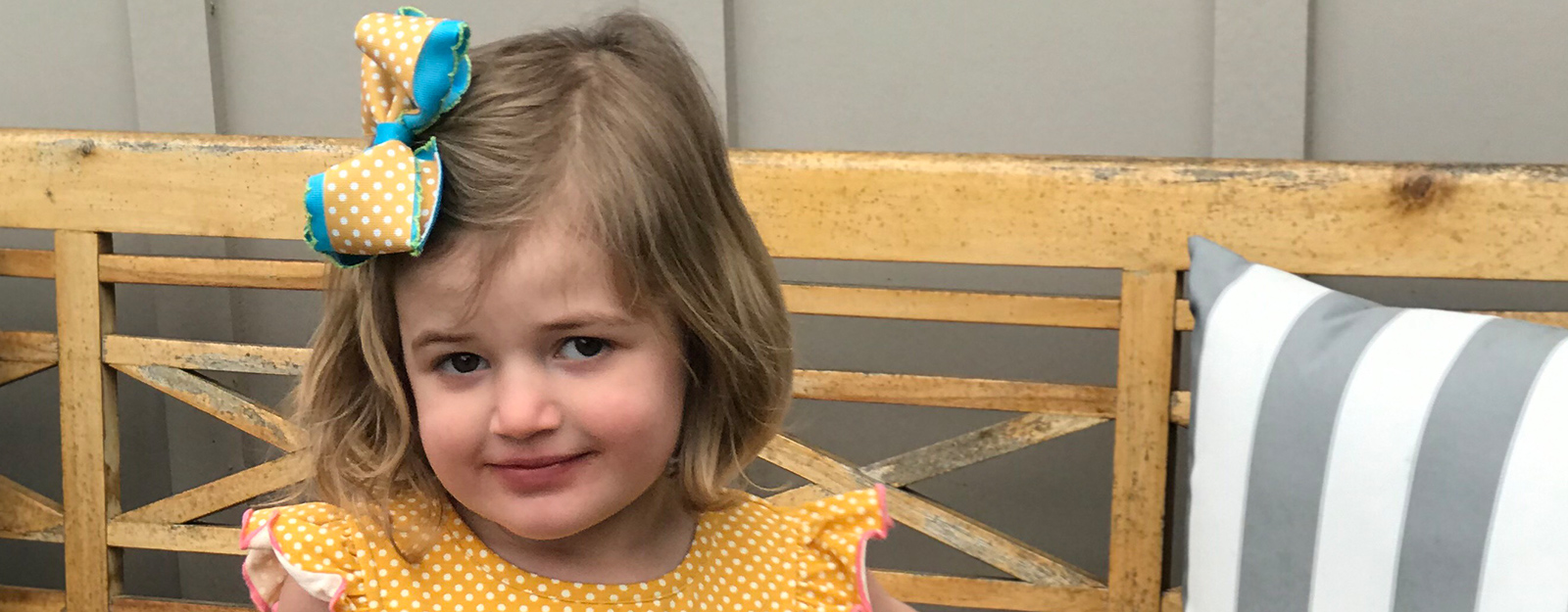- Research Research
-
Care and Services
- Care and Services
- ABA Therapy Program
- School Consultation Program
- Appointments and Referrals
- Assessment and Diagnosis
- Complex Behavior Support Program
- Multidisciplinary Feeding Program
- Language and Learning Program
- Louise and Brett Samsky Preschool
- Medical Services
- Family Support and Care Coordination
- Therapeutic Services
- Resources Resources
-
Training
- Training
- Crisis Prevention Program
- Educational Programs
- Outreach Programs
- Training and Outreach Team
- Get Involved Get Involved
Marcus Autism Center's been a “game-changer” for Piper
Dani and Chris Benner are familiar with what it is like caring for a child with autism spectrum disorder (ASD).
That became a reality for the couple when their son Preston was evaluated at Marcus Autism Center and diagnosed with autism at just 18 months old. “I was distraught, but I’ll never forget someone saying to me, ‘You can go home and mourn the child you thought you were going to have, but wake up tomorrow and embrace this beautiful little boy you do have.’”
Those words struck home for Dani and Chris, so as they raise their son, they continue to do everything they can to help make Preston the best little boy he can be.
The couple's second child, a daughter named Pearson, was born a few years later. She was also evaluated for autism, but Pearson’s screening didn't show signs of the disorder.
“We had always wanted a third child to complete our family,” Dani admitted. But, they were worried that they may have another child with autism.
However, that fear subsided when Dani learned about a sibling study at Marcus Autism Center. The study would allow their third child to begin participating in early intervention that may help reduce the risks of autism. “That was encouraging enough for to us to give it another try, just knowing that Marcus Autism Center would have their eyes on our child from the beginning,” said Dani.
Shortly after Piper was born, Dani enrolled in the study and began taking her to Marcus Autism Center for observations. Dani and Chris noticed Piper was missing some milestones at her 9-month check-up, so it wasn’t a surprise when they received word that Marcus Autism Center flagged Piper for autism at her 12-month visit.
Piper began working with Chris Booth, LMSW, a developmental research interventionist at Marcus Autism Center, who visited the family in their home, working with Piper in her natural environment. “Chris gave us so many tips and tricks to help Piper, pointing out things we could do to really engage her,” Dani says. “What she taught us truly made a difference.”
At Piper’s 2-year-old appointment, she still showed signs of autism, so she remained in the program, but by her 3-year-old appointment, she was no longer showing signs. “She does show some social vulnerability and we still work with her teachers,” Dani says. “But, to see Piper go from where she was trending very similarly to my son to now this child with a healthy future, it’s been a game-changer for us.”
Dani says she’s always advocated for early intervention, but after her experience with Piper, she enjoys sharing her experience with others, illustrating how it can be so beneficial to a child who may be showing signs of autism.
“Early intervention is key,” Dani insists. “So many people are afraid of a label. That’s probably the hardest part of being a parent of a child on the spectrum, when I hear parents saying they don’t want their child labeled. But, we think digging for answers isn’t always a bad thing.”
If you or someone you know is interested in learning or participating in the study, you can view a full list of studies, or call 404-785-7600. The study is ongoing through 2022.

